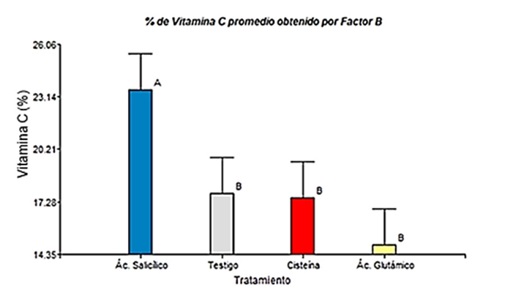Ef fect of Biostimulants on Strawberry (Fragaria ananasa cv. Albion) Production and Quality Under Water Stress
DOI:
https://doi.org/10.28940/terra.v42i.1937Keywords:
glutamic acid, salicylic acid, cysteine, nutraceutical quality, irrigation regimeAbstract
The limited water resources problematics af fects at a global level both social activities and agricultural- In Mexico, the production and importance of strawberry crop is increasing annually, as well as the problems of desertification. This af fect strawberry cultivation because it is sensitive to water stress, which causes damage in productivity quality. Therefore, three biostimulants with an anti-water stress ef fect are evaluated: salicylic acid 0.125 μM L-1 (AS), glutamic acid 5 g L-1 (Glu) and cysteine 50 mg L-1 (Cys) applying them biweekly to strawberry plants with 3 dif ferent irrigation regimes, two with irrigation (15 and 30 days respectively) and stress (having –10 bars of water potential, irrigation is restored and so cyclically); and stress-free watering. The parameters evaluated were fruit weight and diameter, °Brix, antioxidant capacity by the DPPH method, phenolic compounds, proline, vitamin C and titratable total acidity. The biostimulant that favored fruit weight in each irrigation regime was regular + Glu, 15 days + AS and 30 days + Cys. The diameter increased due to the Glu treatment both in the regular irrigation regime and for 30 days, and the AS treatment favored the 15-day regime. Nutraceutical quality was increased by 15-day irrigation regime, in the parameters °Brix (21%), antioxidant capacity (3.5%), phenolic compounds (59%) and acidity (2.5 times more). In the latter two, together with vitamin C, an ef fect was seen by AS which increased the concentration of these three compounds. Phenolic compounds were increased by 67% by the action of AS, vitamin C by 32% and titratable acidity or ascorbic acid was 2.15 times higher than the control. Proline did not vary between treatments.
Downloads
Publication Facts
Reviewer profiles N/A
Author statements
- Academic society
- Terra Latinoamericana
- Publisher
- Mexican Society of Soil Science, C.A.

















